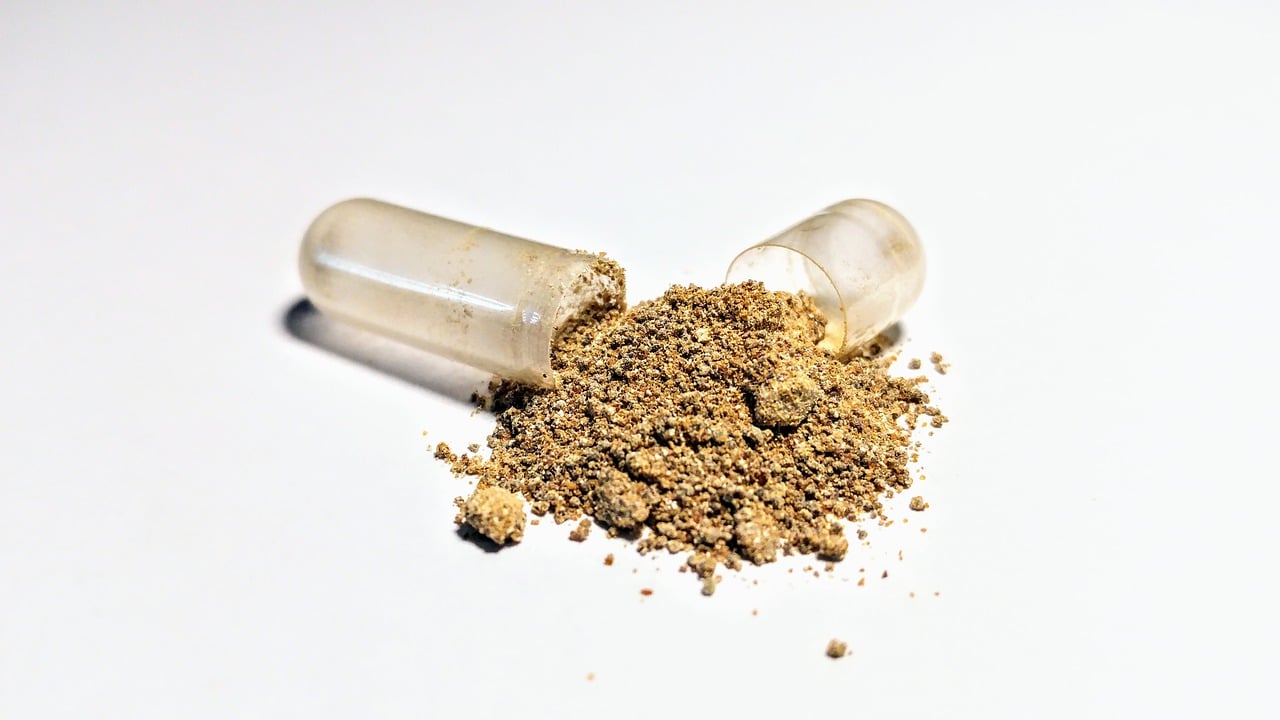This article examines the increasing recognition of serrapeptase as a natural remedy for inflammation. As more individuals seek alternatives to conventional medications, serrapeptase stands out due to its unique properties and potential health benefits. This enzyme, derived from the silkworm, is gaining traction for its ability to address various inflammatory conditions effectively.
What is Serrapeptase?
Serrapeptase is an enzyme that has garnered attention in the health community for its potential to alleviate inflammation. It is produced by the bacterium Serratia marcescens, which is found in the intestines of silkworms. This enzyme plays a crucial role in breaking down proteins that can lead to inflammation, making it a fascinating subject of study for health enthusiasts and researchers alike.
How Does Serrapeptase Work?
The mechanism behind serrapeptase’s effectiveness lies in its ability to break down certain proteins that contribute to inflammation and pain. By targeting these proteins, serrapeptase can help reduce swelling and discomfort, providing relief for various inflammatory conditions.
- Enzymatic Breakdown of Proteins: Serrapeptase acts on inflammatory proteins, leading to a reduction in swelling and pain.
- Impact on Pain Management: By alleviating inflammation, this enzyme serves as a valuable alternative for those seeking pain relief.
- Role in Tissue Healing: Serrapeptase promotes the repair of damaged tissues, potentially speeding up recovery times.
Clinical Studies on Serrapeptase
Research has shown promising results regarding the efficacy of serrapeptase in treating inflammation-related conditions. Numerous studies indicate its potential to alleviate symptoms associated with chronic pain and inflammation, highlighting its therapeutic benefits.
Potential Benefits of Serrapeptase
- Respiratory Health Improvements: Serrapeptase may help reduce mucus buildup, enhancing respiratory function.
- Cardiovascular Support: This enzyme might contribute to cardiovascular health by promoting healthy circulation and reducing arterial plaque.
How to Use Serrapeptase Safely
For those considering serrapeptase, understanding the right dosage and potential side effects is essential. Consulting with a healthcare professional can provide tailored advice based on individual health needs.
- Recommended Dosage Guidelines: Dosage may vary, so it’s important to follow general recommendations or seek personalized advice.
- Possible Side Effects: While generally safe, some users may experience mild side effects, and awareness of these can guide informed decisions.
Conclusion: Is Serrapeptase Right for You?
As serrapeptase continues to gain popularity for its anti-inflammatory properties, understanding its benefits and potential risks is crucial. This knowledge empowers individuals to make informed choices about incorporating serrapeptase into their health regimen.

What is Serrapeptase?
Serrapeptase is an enzyme that has garnered significant interest in the health community due to its potential anti-inflammatory properties. Derived from the silkworm, specifically the Bombyx mori, this enzyme is known for its ability to break down proteins that contribute to inflammation in the body. Understanding its origins and functions is essential for appreciating its role in health and wellness.
The enzyme was first discovered in the 1960s and has been used in Japan and Europe for decades. Its primary function is to dissolve non-living tissue, including fibrin, which is a protein involved in blood clotting and inflammation. This unique ability makes serrapeptase a valuable tool in managing various inflammatory conditions.
When taken as a supplement, serrapeptase is believed to work by breaking down inflammatory proteins and promoting the clearance of dead tissue, thereby aiding in the healing process. This enzymatic action is crucial for its therapeutic effects, particularly in conditions such as arthritis, sinusitis, and post-surgical recovery.
Moreover, serrapeptase may offer additional health benefits beyond inflammation relief. Research suggests that it could improve respiratory health by reducing mucus production and promoting clearer airways. This makes it potentially beneficial for individuals suffering from chronic respiratory conditions.
Furthermore, there is emerging evidence that serrapeptase may support cardiovascular health by helping to reduce arterial plaque and improving circulation. This dual action of addressing inflammation and supporting heart health makes it an intriguing area of study for both researchers and health enthusiasts alike.
In conclusion, serrapeptase is more than just an enzyme; it represents a natural approach to managing inflammation and promoting overall health. As interest in natural remedies continues to rise, understanding the science behind serrapeptase can empower individuals to make informed choices about their health.

How Does Serrapeptase Work?
Serrapeptase is an enzyme that has garnered significant attention for its potential to relieve inflammation. Understanding how this enzyme functions is essential for appreciating its therapeutic benefits. In this section, we will explore the intricate biochemical processes that underpin the effectiveness of serrapeptase in combating inflammation.
The primary mechanism of action for serrapeptase involves its ability to break down proteins that contribute to inflammatory responses in the body. Inflammation is often characterized by the accumulation of certain proteins, which can lead to swelling, pain, and discomfort. Serrapeptase targets these proteins, effectively cleaving them into smaller, more manageable fragments. This enzymatic breakdown not only reduces the concentration of inflammatory proteins but also helps to clear out debris from damaged tissues.
One of the key aspects of serrapeptase’s action is its ability to modulate the immune response. By reducing the levels of pro-inflammatory cytokines—substances secreted by immune cells that promote inflammation—serrapeptase can help restore balance within the immune system. This modulation can lead to a decrease in symptoms associated with various inflammatory conditions, such as arthritis, sinusitis, and even post-surgical inflammation.
Moreover, serrapeptase has been noted for its role in enhancing tissue healing. The enzyme aids in the removal of necrotic tissue, which is crucial for the healing process. By clearing out dead cells and promoting new tissue formation, serrapeptase can significantly accelerate recovery times following injuries or surgeries.
In summary, the biochemical processes facilitated by serrapeptase—ranging from protein breakdown to immune modulation and tissue repair—collectively contribute to its effectiveness as a natural anti-inflammatory agent. Understanding these mechanisms not only highlights the enzyme’s potential benefits but also encourages further research into its applications in health and wellness.
Enzymatic Breakdown of Proteins
Serrapeptase is a powerful enzyme that plays a critical role in the body’s ability to manage inflammation effectively. By specifically targeting inflammatory proteins, serrapeptase facilitates the breakdown of substances that contribute to swelling and pain. This enzymatic action is not only vital for its therapeutic effects but also offers numerous health benefits.
The mechanism through which serrapeptase operates involves the hydrolysis of protein bonds, leading to the disintegration of proteins that are involved in inflammatory responses. This process is crucial for reducing inflammation and promoting healing in various tissues. When inflammatory proteins are broken down, the body can more effectively manage pain and discomfort associated with conditions such as arthritis, sinusitis, and other inflammatory diseases.
Furthermore, serrapeptase’s ability to dissolve fibrin, a protein involved in blood clotting and inflammation, enhances its effectiveness in promoting tissue healing. By clearing away dead or damaged tissue, serrapeptase accelerates recovery times and improves overall health outcomes. This makes it a valuable option for individuals seeking alternative methods for pain relief and recovery.
In addition to its anti-inflammatory properties, serrapeptase may also support cardiovascular health by reducing arterial plaque buildup, which can lead to improved circulation and reduced risk of heart-related issues. Its multifaceted benefits make it an intriguing subject for ongoing research in the field of natural health remedies.
In conclusion, the enzymatic breakdown of proteins by serrapeptase is a significant process that contributes to its effectiveness in managing inflammation and promoting healing. As more individuals seek natural alternatives for health management, understanding the role of serrapeptase can provide valuable insights into its potential benefits.
Impact on Pain Management
Serrapeptase has emerged as a significant player in the realm of pain management, particularly due to its ability to address inflammation effectively. By targeting the underlying causes of pain, serrapeptase provides a natural alternative for individuals who are seeking relief from various conditions. This enzyme, originally derived from the silkworm, works by breaking down proteins that contribute to inflammation, thereby reducing both swelling and discomfort.
The mechanism through which serrapeptase operates is quite fascinating. When introduced into the body, it identifies and dismantles inflammatory proteins, which can lead to a noticeable decrease in pain levels. Many individuals suffering from chronic pain conditions, such as arthritis or fibromyalgia, have reported significant improvements in their symptoms after incorporating serrapeptase into their health regimen. This makes it a valuable option for those looking for alternative pain relief methods.
Moreover, serrapeptase not only alleviates pain but also promotes overall healing. By clearing away dead or damaged tissue, it accelerates the recovery process after injuries or surgeries. This dual action of pain relief and tissue repair makes serrapeptase a unique supplement in the health and wellness industry.
In clinical settings, studies have shown promising results regarding the efficacy of serrapeptase in reducing pain and inflammation. For instance, participants in various trials have experienced reduced reliance on traditional pain medications, showcasing the potential of serrapeptase as a safer and more natural alternative.
In conclusion, if you are exploring options for pain management, serrapeptase may be worth considering. Its ability to reduce inflammation and promote healing offers a holistic approach to pain relief, making it a compelling choice for many individuals.
Role in Tissue Healing
Serrapeptase, an enzyme originally derived from the silkworm, has gained significant attention for its remarkable ability to aid in tissue healing. This enzyme promotes recovery by effectively clearing away dead or damaged tissue, thereby accelerating the body’s natural healing processes. Its unique properties make it a valuable tool in the realm of health and wellness, particularly for those recovering from injuries or surgeries.
When the body experiences an injury, it initiates a complex healing response that involves inflammation, tissue repair, and regeneration. Serrapeptase plays a crucial role in this process by targeting and breaking down proteins that contribute to inflammation. By minimizing this inflammation, it not only reduces pain but also facilitates a more efficient healing environment.
The enzyme works by digesting non-living tissue, which can help clear out cellular debris that might otherwise hinder the healing process. This action is particularly beneficial in conditions such as post-surgical recovery, where efficient tissue repair is essential for optimal recovery times. Studies have indicated that individuals who incorporate serrapeptase into their recovery regimen experience faster healing and reduced swelling compared to those who do not.
Moreover, serrapeptase’s ability to enhance circulation can further support tissue repair. By promoting healthy blood flow, it ensures that essential nutrients and oxygen reach the damaged areas, thereby enhancing the body’s natural healing capabilities. This dual action of reducing inflammation and improving circulation makes serrapeptase a powerful ally in tissue healing.
In conclusion, the role of serrapeptase in tissue healing cannot be overstated. Its unique enzymatic properties not only clear away harmful debris but also create an optimal environment for recovery, making it a popular choice for individuals seeking to enhance their healing processes.
Clinical Studies on Serrapeptase
Numerous research studies have explored the effectiveness of serrapeptase in managing various inflammation-related conditions. This section aims to summarize key findings from these studies, shedding light on their implications for overall health and wellness.
Serrapeptase has been the focus of multiple clinical trials, with researchers evaluating its impact on conditions such as arthritis, sinusitis, and post-operative swelling. The results from these studies suggest that serrapeptase may significantly reduce inflammation and pain, which are often debilitating for many individuals.
- Arthritis Relief: One study indicated that patients with osteoarthritis experienced a noticeable reduction in pain and improved joint function after taking serrapeptase over a period of weeks.
- Sinusitis Treatment: Another trial highlighted serrapeptase’s ability to decrease sinus congestion and improve breathing in individuals suffering from chronic sinusitis.
- Post-Surgical Recovery: Research has shown that serrapeptase can help minimize swelling and promote faster healing in patients recovering from surgical procedures.
These findings suggest that serrapeptase not only alleviates symptoms but may also play a role in the overall healing process. By breaking down inflammatory proteins, serrapeptase helps to facilitate recovery and improve quality of life for those affected by chronic conditions.
However, while the results are promising, it is essential to approach serrapeptase as a complementary treatment rather than a standalone solution. Consulting with a healthcare professional before starting any new supplement regimen is crucial to ensure safety and effectiveness.
In conclusion, the body of research surrounding serrapeptase indicates its potential as a valuable tool in managing inflammation-related conditions. As more studies emerge, the understanding of its benefits and mechanisms will continue to evolve, offering hope for those seeking natural alternatives to traditional medications.

Potential Benefits of Serrapeptase
Serrapeptase has garnered attention in the health community for its wide-ranging benefits, extending far beyond its well-known ability to alleviate inflammation. This enzyme, derived from the silkworm, is increasingly recognized for its potential to support respiratory health and enhance cardiovascular function. Below, we explore these additional advantages in detail.
One of the remarkable benefits of serrapeptase is its ability to improve respiratory health. Studies indicate that this enzyme can help:
- Reduce mucus buildup: By breaking down mucus in the airways, serrapeptase can promote clearer breathing.
- Alleviate symptoms of chronic respiratory conditions: Individuals suffering from conditions such as asthma or chronic bronchitis may find relief through serrapeptase’s anti-inflammatory properties.
- Enhance lung function: Improved airflow and reduced congestion can lead to better overall respiratory efficiency.
Serrapeptase also shows promise in supporting cardiovascular health. Its potential benefits include:
- Reducing arterial plaque: Serrapeptase may help dissolve fibrin, a protein involved in blood clotting, thereby potentially reducing the risk of arterial blockages.
- Improving circulation: Enhanced blood flow can support heart health and reduce the risk of cardiovascular diseases.
- Lowering blood pressure: By promoting better circulation and reducing inflammation, serrapeptase may contribute to lower blood pressure levels.
In summary, the advantages of serrapeptase extend beyond inflammation relief, offering significant benefits for both respiratory and cardiovascular health. As research continues to unveil its potential, individuals seeking natural health solutions may find serrapeptase a valuable addition to their wellness regimen.
Respiratory Health Improvements
Serrapeptase has emerged as a promising natural remedy for various respiratory conditions, drawing attention for its potential to enhance respiratory function. This enzyme, derived from the silkworm, is believed to play a significant role in promoting clearer airways and reducing mucus production. With its anti-inflammatory properties, serrapeptase offers a multifaceted approach to improving respiratory health.
- Reduction of Mucus: One of the primary benefits of serrapeptase is its ability to break down mucus. By doing so, it can help alleviate symptoms associated with conditions like asthma, chronic bronchitis, and sinusitis. Users often report easier breathing and less congestion.
- Enhanced Airway Clarity: Serrapeptase works to clear the airways, allowing for better airflow. This is particularly beneficial for individuals who suffer from allergies or respiratory infections, as it helps to reduce inflammation and irritation in the airways.
- Support for Overall Respiratory Function: By promoting a healthier environment within the respiratory system, serrapeptase contributes to improved lung function. This can lead to increased oxygen intake and overall better health.
Moreover, clinical studies have suggested that serrapeptase may have a role in reducing the severity of respiratory symptoms. For instance, a study published in a reputable medical journal indicated that patients using serrapeptase experienced fewer flare-ups and improved quality of life.
As more people seek natural alternatives for managing respiratory issues, serrapeptase stands out as a viable option. Its ability to address the underlying causes of respiratory distress, rather than merely masking symptoms, makes it an exciting area of research in holistic health.
In conclusion, serrapeptase presents a valuable opportunity for those looking to enhance their respiratory health. Its multifaceted benefits, particularly in reducing mucus and promoting clearer airways, make it a noteworthy consideration for individuals seeking natural remedies.
Cardiovascular Support
is a critical aspect of overall health, and serrapeptase has emerged as a potential ally in promoting heart health. This enzyme, derived from the silkworm, has garnered attention for its ability to potentially reduce arterial plaque and enhance circulation, making it an intriguing subject for research and health discussions.
Serrapeptase works by targeting and breaking down proteins that contribute to inflammation and arterial blockages. By doing so, it may help in reducing arterial plaque, thereby improving blood flow and reducing the risk of cardiovascular diseases. The enzyme’s ability to dissolve fibrin, a protein involved in blood clotting, can further aid in maintaining healthy blood vessels.
- Improved Circulation: Enhanced blood flow can lead to better oxygen and nutrient delivery throughout the body, supporting overall vitality.
- Potential Heart Health Benefits: Regular use of serrapeptase may contribute to lower blood pressure and reduced cholesterol levels, which are crucial for maintaining heart health.
- Anti-Inflammatory Properties: By addressing inflammation, serrapeptase may help alleviate stress on the cardiovascular system, promoting a healthier heart.
Clinical studies have begun to explore the implications of serrapeptase on cardiovascular health. Preliminary findings suggest that those who incorporate this enzyme into their regimen may experience significant benefits. However, more extensive research is needed to fully understand its effects and establish definitive guidelines for use.
In conclusion, while serrapeptase shows promise in supporting cardiovascular health, it is essential to approach its use with caution. Consulting with healthcare professionals is recommended to ensure safe and appropriate use, particularly for individuals with existing health conditions or those taking medications. As interest in natural remedies continues to grow, serrapeptase stands out as a compelling option worth considering for heart health.

How to Use Serrapeptase Safely
Understanding the appropriate dosage and potential side effects of serrapeptase is essential for safe use. This section provides guidelines for incorporating it into your health regimen.
Serrapeptase, a proteolytic enzyme, has gained attention for its anti-inflammatory properties. However, to maximize its benefits while minimizing risks, it is crucial to understand how to use it safely.
- Recommended Dosage: The typical dosage of serrapeptase ranges from 10 mg to 60 mg per day, depending on individual health needs and conditions. It is advisable to start with a lower dose and gradually increase it, monitoring your body’s response.
- Timing of Intake: For optimal absorption, serrapeptase should be taken on an empty stomach, either 30 minutes before meals or two hours after eating. This ensures that the enzyme is not inhibited by food.
- Consult with a Healthcare Professional: Before starting serrapeptase, it is important to consult with a healthcare provider, especially if you are pregnant, nursing, or taking medications that affect blood clotting.
Possible Side Effects: While serrapeptase is generally well-tolerated, some individuals may experience mild side effects, including:
- Digestive disturbances such as nausea or diarrhea
- Allergic reactions, though rare, can occur
- Increased risk of bleeding, particularly in those on anticoagulant medications
Staying informed about these potential side effects can help users make informed decisions regarding their health. If any adverse reactions occur, it is advisable to discontinue use and consult a healthcare professional.
By adhering to these guidelines, individuals can safely incorporate serrapeptase into their health regimen, harnessing its benefits while minimizing risks.
Recommended Dosage Guidelines
Determining the appropriate dosage of serrapeptase is crucial for maximizing its benefits while minimizing potential risks. The dosage can vary significantly depending on individual health needs, conditions, and specific health goals. Here, we provide a comprehensive overview of general recommendations for safe consumption.
- General Dosage Range: For most adults, a typical dosage of serrapeptase ranges from 10 mg to 60 mg per day. It is essential to start at the lower end of the range and gradually increase as needed.
- Consultation with Healthcare Provider: Before starting serrapeptase, it is advisable to consult with a healthcare professional, especially for individuals with pre-existing health conditions or those taking other medications.
- Timing of Dosage: Serrapeptase is best taken on an empty stomach to enhance absorption. It is recommended to take it at least 30 minutes before meals or two hours after meals.
- Duration of Use: While serrapeptase can be used for short-term relief, long-term use should be monitored by a healthcare provider to ensure safety and effectiveness.
- Special Considerations: Pregnant or breastfeeding women, as well as individuals with bleeding disorders or those scheduled for surgery, should exercise caution and seek medical advice before using serrapeptase.
In summary, while serrapeptase can offer significant health benefits, understanding the right dosage is key to safe and effective use. Always prioritize professional guidance to tailor the dosage to your specific needs.
Possible Side Effects
While serrapeptase is generally regarded as a safe supplement for many individuals, it is important to recognize that some users may experience side effects. Understanding these potential reactions can empower users to make informed decisions about incorporating this enzyme into their health regimen.
- Gastrointestinal Issues: Some individuals may experience digestive discomfort, including symptoms such as nausea, diarrhea, or abdominal pain. These effects may be more pronounced when serrapeptase is taken on an empty stomach.
- Allergic Reactions: Although rare, some users may have allergic reactions to serrapeptase, which could manifest as skin rashes, itching, or swelling. If any of these symptoms occur, it is advisable to discontinue use immediately and consult a healthcare professional.
- Increased Bleeding Risk: Serrapeptase may have blood-thinning properties, which could increase the risk of bleeding, especially for individuals taking anticoagulant medications. It is essential for these individuals to consult their healthcare provider before starting serrapeptase.
- Interactions with Medications: There is potential for serrapeptase to interact with certain medications, particularly those affecting blood coagulation or anti-inflammatory drugs. Users should always inform their healthcare provider about all supplements they are taking.
It is advisable to start with a low dosage and gradually increase as tolerated, while monitoring for any adverse effects. Consulting with a healthcare professional before starting serrapeptase is recommended, especially for individuals with pre-existing health conditions or those taking other medications.
In conclusion, while serrapeptase may offer numerous benefits, being aware of the possible side effects is crucial for safe and effective use. By staying informed, users can make better health decisions and enjoy the potential advantages of this enzyme.

Conclusion: Is Serrapeptase Right for You?
As the interest in serrapeptase continues to grow, it is essential to evaluate both its benefits and risks to make informed health decisions. This enzyme, derived from the silkworm, has emerged as a popular natural remedy for inflammation relief. However, understanding how it works and its potential side effects is crucial for anyone considering its use.
Research indicates that serrapeptase may effectively reduce inflammation by breaking down proteins that contribute to swelling and pain. This enzymatic action can provide significant relief for individuals suffering from various inflammatory conditions. Moreover, serrapeptase has been associated with additional health benefits, such as improved respiratory function and enhanced cardiovascular health, making it an appealing option for those looking to support their overall well-being.
However, it is equally important to be aware of the potential side effects associated with serrapeptase. While generally considered safe, some users may experience digestive discomfort or allergic reactions. Therefore, consulting with a healthcare provider before starting any new supplement is highly recommended, especially for individuals with pre-existing health conditions or those taking other medications.
Ultimately, the decision to incorporate serrapeptase into your health regimen should be based on a thorough understanding of its effects, benefits, and risks. By weighing these factors carefully, you can make an informed choice that aligns with your health goals and needs.
In summary, as serrapeptase gains traction as a natural solution for inflammation, staying informed about its mechanisms, benefits, and potential risks is essential for making the best health choices.







